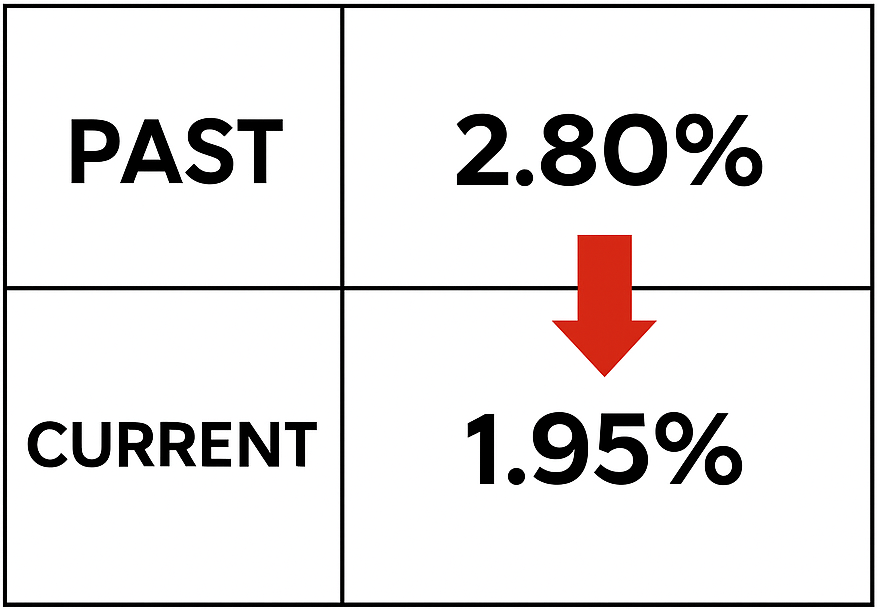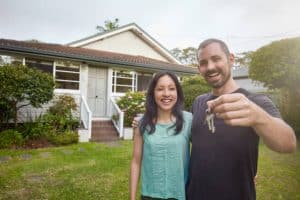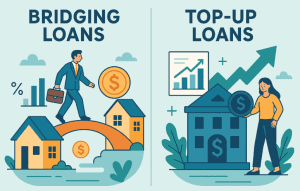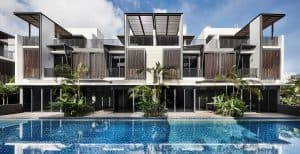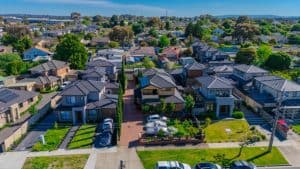If you’ve been wondering this lately, you’re not the only one. Between rising rents, shifting demand, and talk of higher interest rates, many investors are rethinking their next move.
Some say it’s too risky. Others are snapping up shophouses and industrial units like hotcakes.
In this quick guide, we’ll break down the 2025 outlook, where the smart money’s going, and whether buying commercial property still makes sense — or if it’s time to look elsewhere.
Is Now Still a Good Time to Enter the Commercial Market?
2025 has been anything but predictable for Singapore’s commercial property scene. While some sectors are booming, others are facing softer demand. So if you’re wondering whether now’s the right time to buy — you’re asking the right question.
Let’s take a closer look at what the numbers say, who’s buying what, and whether it makes sense to enter the market now or sit on the sidelines.
What’s happening with prices, rents and demand in 2025?
As of mid-2025, the commercial property market is seeing a steady rebound from its 2023 plateau. According to URA and Colliers data:
- Grade A office rents in the CBD rose 2.3% in Q1 2025, largely driven by tech and legal tenants.
- Industrial spaces (especially logistics and B2 factories) are commanding yields of 4.5–5.5%.
- Retail and strata office units remain mixed — demand is picking up, but location matters more than ever.
2025 Commercial Property Trends in Singapore (Q1 Snapshot)
| Property Type | Avg Rental Yield | 2025 Q1 Price Trend | Demand Level |
|---|---|---|---|
| Grade A Office (CBD) | 3.0–3.5% | +2.3% | Stable |
| Industrial (Logistics) | 4.5–5.5% | +1.8% | High |
| Shophouses | 3.5–4.5% | +4.2% | Strong (HNWI-led) |
| Retail (Suburban) | 2.5–3.5% | Flat | Location-dependent |
| Strata Office (Fringe) | 3.0% | -1.1% | Soft |
As you can see, not all sectors are equal. Investors looking for yield are moving away from traditional office towers toward industrial units or conservation shophouses — especially those in prime districts like Tanjong Pagar and Kampong Glam.
Who’s actively investing — and what are they buying?
Here’s where things get interesting: it’s not just big developers or REITs anymore.
In 2025, we’re seeing more business owners, family offices, and even first-time commercial buyers entering the market — especially those looking for stability outside of residential property, which is now subject to higher ABSD and tighter loan restrictions.
✔️ High-net-worth individuals (HNWI) are targeting freehold shophouses with no ABSD and good rental upside.
✔️ SMEs are eyeing industrial B1/B2 spaces for own use, as rental costs continue to rise.
✔️ Yield-seeking investors are exploring commercial units in mixed-use developments for better footfall.
Expert tip: If you’re comparing options, make sure to use a Singapore mortgage loan calculator to estimate your monthly payments accurately — commercial property loans differ significantly from residential ones
Should you wait or jump in now based on market signs?
Waiting is tempting, especially with talk of interest rates softening later in the year. But here’s the catch: good units don’t wait — especially in high-demand areas.
Here’s what to consider:
- Financing costs may improve slightly if SORA dips later in 2025, but price corrections in prime areas are unlikely.
- Scarcity is real, especially for freehold and mixed-use units.
- Lenders are becoming more selective — pre-approval for a commercial property loan in Singapore is essential before making offers.
👉 If you’re buying for your own business use or looking for long-term rental income, 2025 is still a buyer’s market — but only if you know what you’re looking for.
What Kinds of Commercial Property Actually Make Sense to Buy?
📌 Not all commercial units are created equal. Some give steady yield, others are speculative plays. Here’s how to tell where the real value lies today.
When it comes to commercial property investment in Singapore, what you buy matters just as much as when you buy it. The right unit in the right location can generate strong rental returns and long-term capital growth — but the wrong one? That could sit vacant for months.
Let’s break down what’s working best in 2025.
Office, shophouse or warehouse — what gives best value in 2025?
Among the top-performing asset types this year:
- Shophouses continue to be investor favourites — especially in heritage zones with no ABSD.
- Industrial units (like B2 factories) offer solid yields and appeal to business owners.
- Grade A office units in the CBD are stabilising, but the fringe areas remain soft.
Comparing Commercial Property Types in Singapore (2025 Performance)
| Property Type | Typical Yield (2025) | Capital Upside | Best For |
|---|---|---|---|
| Conservation Shophouse | 3.5% – 4.5% | High (Freehold) | HNWIs, legacy buyers |
| Industrial B1/B2 | 4.5% – 5.5% | Moderate | Business owners, yield hunters |
| Grade A Office | 3.0% – 3.5% | Moderate | Institutional investors |
| Retail Units | 2.5% – 3.5% | Low–Moderate | F&B, lifestyle tenants |
| Strata Office | ~3.0% | Low | Budget-conscious investors |
💡 Pro tip: If you’re buying purely for income, focus on yield over prestige. Shophouses may be Instagram-worthy, but B2 industrial units often offer stronger cashflow.
How to pick a high-potential location (even outside CBD)
You don’t need to chase Marina Bay to find value in 2025. Some of the most promising areas for commercial investment right now are:
- Paya Lebar & Tai Seng: rising demand for warehouse and B1 use
- Little India & Jalan Besar: boutique shophouses with footfall potential
- Boon Lay & Jurong West: industrial sites near transformation nodes
Use URA’s Master Plan to spot upcoming zoning upgrades or transport improvements.
And if you’re buying for own-use, make sure your property loan rate in Singapore fits within your cashflow — industrial properties typically need higher downpayments and have more limited financing.
What to check before you commit — title, zoning, usage rights
Here’s the not-so-sexy stuff that actually protects your investment:
- Zoning: Not all commercial units can be used freely — check URA’s land use details.
- Usage approval: Planning to open an F&B business? You’ll need URA’s permission, even for commercial-zoned space.
- Title type: Freehold is rare but prized. Leasehold industrial units with <60 years may struggle with loan approval or resale.
Before signing the OTP, always get legal advice and pre-approval on a Singapore commercial property loan so you’re clear on your budget and restrictions.
How Does Commercial Property Stack Up Against Residential?
Already own a condo? You might wonder if another home or a commercial unit makes more sense. Here’s how they compare — especially now that residential rules are tightening.
With Singapore home loan interest rates creeping up and ABSD rates still in place, many seasoned buyers are taking a serious look at commercial properties instead of adding another residential unit.
But is commercial really better? Let’s compare the key differences — from taxes to financing and long-term flexibility.
Which gives better tax treatment and returns?
Here’s the big one: no ABSD on commercial property. If you already own a home and want to invest again, this is a game-changer.
Also, while residential properties tend to rely on capital appreciation, commercial units — especially industrial and shophouses — offer more consistent rental yields.
Commercial vs Residential Property in Singapore (2025 Comparison)
| Feature | Commercial Property | Residential Property |
|---|---|---|
| ABSD | ❌ No | ✅ Yes (up to 20%+ for 2nd/3rd homes) |
| Rental Yield (Typical) | 3.5% – 5.5% | 2.5% – 3.5% |
| CPF Usage | ❌ Not allowed | ✅ Yes |
| Tax Treatment | Business expenses deductible | Property tax rebates for owner-occupiers |
| Stamp Duty (BSD) | ✅ Applies | ✅ Applies |
| Capital Upside Potential | Moderate to High (select assets) | Moderate (gov’t regulated growth) |
💡 If you’re yield-focused and hate the idea of locking up more CPF, commercial could be your better bet
How financing rules and downpayments differ
One of the biggest myths is that all property loans work the same. They don’t.
For commercial property loans in Singapore, banks typically offer lower loan-to-value (LTV) ratios — meaning you’ll need a bigger cash downpayment, and CPF cannot be used.
Residential loans, on the other hand, allow for CPF usage, and you may get a better home loan rate in Singapore — depending on your TDSR and credit profile.
👉 Tip: Use a mortgage loan repayment calculator to estimate monthly instalments based on the type of property you’re targeting.
Should you go commercial if you already own a home?
If you already have a private condo or an HDB flat and don’t want to trigger more ABSD — commercial property becomes a very attractive alternative.
That said, ask yourself:
- Are you okay with a higher cash outlay upfront?
- Do you have time to manage tenants (if you’re renting it out)?
- Is your goal yield, own-use, or long-term capital preservation?
For many investors, going commercial after buying residential is a smart way to diversify — without facing hefty ABSD or CPF lock-ins.
And if you’re not sure which type suits your financial situation, it’s best to speak with a trusted mortgage broker in Singapore who can break down your eligibility, loan structure, and risk profile across both property types.
What Are the Real Risks of Buying Commercial Property?
If you’re putting in hundreds of thousands — you want to avoid expensive mistakes. These are the risks buyers often underestimate.
Commercial property can be a rewarding investment, but it’s far from a guaranteed win. Unlike residential units, there’s less emotional demand — and fewer safety nets.
Common mistakes new investors make (and how to avoid them)
Let’s be real: many first-time buyers jump in because they hear “no ABSD” and “better yields.” But they overlook some of the basics:
- Not reviewing zoning restrictions — some units can’t legally be used for retail or F&B.
- Assuming rental income is stable — some commercial tenants default, leave early, or request rent reductions.
- Ignoring financing lock-ins — especially if you picked a fixed rate mortgage without understanding how breakage fees work.
👉 Tip: Before signing anything, read up on how fixed and floating home loan rates compare so you don’t get stuck with the wrong package — yes, even commercial loans have different interest structures.
What if your rental income drops — or no one rents?
Unlike residential units where there’s always baseline demand, commercial spaces are more sensitive to economic shifts.
In fringe locations or older buildings, you might face:
- Longer vacancy periods
- Tenants requesting rental support
- Higher marketing and fit-out costs
This is where cash flow planning matters. Before purchasing, use a mortgage loan repayment calculator to estimate your holding power if your unit stays empty for 2–3 months.
Also, Ace Mortgage’s breakdown of loan principal vs interest will help you understand how much of your payment is actually reducing your loan vs just covering interest — critical when cash flow is tight.
Will rising interest rates kill your returns?
While rates have stabilised slightly in mid-2025, they’re still significantly higher than during the ultra-low SORA days. If you’re financing your purchase, even a 0.5% rate difference can eat into your rental returns.
Smart investors now compare mortgage loan rates in Singapore regularly — not just for residential but commercial too. Use tools like Ace Mortgage’s mortgage loan repayment calculator to estimate your monthly instalments and compare between banks before locking in a long-term package.
If you’re thinking of refinancing an existing unit or switching to a better commercial loan package, timing is key — especially if you’re nearing the end of a fixed-rate lock-in.
So… Is Commercial Property Still Worth It for You?
The answer depends on your goals. Here’s how to know if it fits your financial plan — and how to get started without overcommitting.
By now, you’ve seen both the upside and the fine print. Commercial property investment in Singapore isn’t for everyone — but when done right, it can diversify your portfolio, beat inflation, and generate solid passive income.
Let’s help you decide if it’s your next smart move.
Who is commercial investment actually suitable for?
You don’t need to be a tycoon to enter the commercial market, but it helps to have:
- A strong cash buffer (30–40% downpayment is common)
- A stable income or business model (especially if it’s for own use)
- Long-term holding power (capital gains aren’t quick flips)
Ideal candidates include:
- Business owners tired of renting and looking to own their office/warehouse
- High-net-worth individuals (HNWIs) avoiding ABSD on residential properties
- Experienced investors looking to expand beyond residential rental yields
If you’re already paying high rent for your workspace, it might be smarter to explore a Singapore commercial property loan and start building equity in a space you control.
Low-barrier options if you don’t want to go all in
Not ready to drop half a million? You’ve still got entry points:
- Industrial B1/B2 units in fringe areas (many under S$800k)
- Commercial strata units in older malls (higher yield, lower entry price)
- Co-investing with a business partner or family member
💡 Or explore alternatives like REITs, which give you commercial exposure with far less commitment — though without direct control.
Before you decide, try plugging some numbers into Ace Mortgage’s mortgage loan repayment calculator to see if your monthly repayments match your comfort zone.
3 final checks before you sign the OTP
📌 Think you’ve found the right unit? Do this before making it official:
- Get pre-approved for your commercial loan — use a broker to compare across banks.
- Verify zoning and usage restrictions via URA and property title search.
- Check the remaining lease and building condition — especially for strata or industrial units.
And if you’re still unsure?
Still unsure if commercial property fits your goals?
Get a free consultation with a licensed mortgage advisor. We’ll walk you through current loan options, grants, and what type of asset best fits your profile.
Explore your commercial property loan options
Bonus Section: FAQs About Commercial Property Investment in Singapore (2025)
These are the top questions Singapore buyers are Googling right now — here are the updated answers.
❓ Can foreigners buy commercial property in Singapore?
Yes. Unlike residential property, foreigners can generally buy commercial units without ABSD. Do check URA zoning restrictions.
❓ What’s the minimum downpayment for commercial property?
Usually 30–40% in cash. CPF cannot be used.
❓ Is buying a shophouse a good investment in 2025?
Yes, especially freehold conservation shophouses in central areas. They’re highly sought after and not subject to ABSD.
❓ Can I take a loan for commercial property in Singapore?
Yes — but banks typically offer lower LTV (60–70%) than for residential loans.
❓ What’s better in 2025 — residential or commercial investment?
It depends. Commercial avoids ABSD and can offer higher yields, but comes with higher cash requirements and risk.


